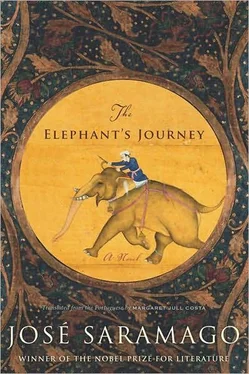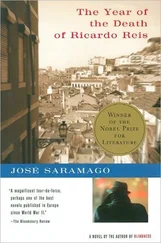We have left bressanone now. It's hard to understand why in such a rugged region as this, where there is no shortage of vertiginous mountain ranges one after the other, it was thought necessary to gouge out such deep scars as the isarco and the brenner pass, rather than putting them in places on the planet less blessed with natural beauty, where such exceptional, amaz ing geological phenomena could, with the aid of the tourist industry, materially benefit the modest, long-suffering lives of the local inhabitants. Contrary to what you might, quite rightly, think, bearing in mind our problems when it came to describing the isarco pass, these comments are not intended to replace the foreseeable paucity of descriptions of the brenner pass that we are about to enter. They are merely a humble recognition of how much truth is contained in that well-known phrase, Words fail me. Because words really do fail us. They say that in one of the languages spoken by the indigenous peoples of south america, possibly in amazonia, there are more than twenty ways, about twenty-seven we seem to recall, of describing the color green. Compared with the poverty of our own vocabulary in that respect, you would think it would be easy for them to describe the forests in which they live, in the midst of all those minutely differentiated greens, distinguished by subtle, almost imperceptible nuances. We don't know that they ever tried nor, if they did, whether they were satisfied with the result. What we do know is that a monochromatic approach won't solve the problem, why, one need look no further than the apparently pure whiteness of these mountains, because, for all we know, there may be more than twenty different shades of white that the eye cannot perceive, but whose existence it can intuit. The truth, if we want to accept it in all its crudity, is that it's simply not possible to describe a landscape in words. Or rather, it's possible, but not worthwhile. I wonder if it's even worth writing the word mountain when we don't know what name the mountain would give itself. Painting, though, is a different matter, it's perfectly capable of creating on the palette twenty-seven different shades of green that have eluded nature, plus a few others that don't even seem green, but that, of course, is what we call art. Painted trees do not lose their leaves.
We are now inside the brenner pass. On the archduke's express orders, utter silence reigns. This time, the convoy, as if fear had produced a congregational effect, shows not the slightest tendency to disperse, the muzzles of the horses drawing the archduke's carriage are almost touching the hindquarters of the cuirassiers' horses immediately in front, suleiman is so close to the archduchess's little bottle of perfume that he can breathe in the delicious scent that issues from it whenever the daughter of charles the fifth feels a need to refresh herself. The rest of the convoy, beginning with the ox-cart carrying the forage and the water trough, follows right behind as if there were no other way to reach their destination. Everyone is shivering with cold, but also, and above all, with fear. The tortuous crevices of the sheer escarpments are filled with the snow that occasionally breaks free and falls with a dull thud on the convoy, and these small avalanches, while not dangerous in themselves, only serve to increase the levels of fear. No one feels confident enough to use their eyes to enjoy the beauty of the landscape, although there are those familiar with the place who remark to their neighbor, It's much prettier here when there's no snow, What do you mean prettier, asked their companion, intrigued, Well, it's not really something you can put into words. The greatest disrespect we can show for reality, whatever that reality might be, when attempting the pointless task of describing a landscape, is to do so with words that are not our own and never were, by which we mean words that have already appeared on millions of pages and in millions of mouths before our turn to use them finally comes, weary words, exhausted from being passed from hand to hand, leaving in each one part of their vital substance. If we were to write, for example, the words crystalline stream, so often used in describing landscapes, we never stop to wonder if the stream is still as crystalline as it was when we saw it for the first time, or if it has ceased to be a stream and become instead a rushing river, or, unhappy fate, the foulest and most malodorous of swamps. It may not seem so at first sight, but all of this is closely related to our earlier brave affirmation that it is simply not possible to describe a landscape or, by extension, anything else. In the mouth of a trusted person who, for example, knows these places as they appear at all the different seasons of the year, such words would give us food for thought. If that person, in all honesty and basing himself on long experience, were to say that it's impossible to describe what your eyes see by translating it into words, whether it be snow or a garden in full bloom, how could anyone dare to do so who has never in his life been through the brenner pass and certainly not in the sixteenth century, when there were no roads or gas stations, hot snacks and cups of coffee, not to mention a motel where you could spend the night in the warm, while outside the storm rages and a lost elephant utters the most anguished of cries. We were not there, we have been guided by whatever information we could garner, possibly of dubious value, for example, an old engraving, deserving of our respect only because of its great age and ingenious design, shows an elephant in hannibal's army falling into a ravine when, according to the experts, during the carthaginian army's laborious crossing of the alps, not one elephant was lost. No one was lost here either. The convoy is still keeping together, close and resolute, qualities that are no less praiseworthy for being based, as we explained earlier, on entirely selfish motives. There are, however, exceptions. The cuirassiers' biggest concern, for example, has nothing to do with their own personal safety, but with that of their horses, obliged now to walk on slippery, compacted, blue-gray ice, where a metacarpal fracture would have the most fatal of consequences. However this may rankle with the stubborn lutheranism of archduke maximilian the second of austria, the miracle performed by suleiman at the door of the basilica of saint anthony in padua has so far protected the convoy, not only the powerful people traveling in it, but the ordinary ones too, which stands as proof, if proof were needed, of the rare and excellent thaumaturgical virtues of a saint who was born fernando de bulhões and over whom two cities, lisbon and padua, have been arguing for centuries, rather pointlessly it must be said, because it is clear to everyone that padua ended up flying the flag of victory, while lisbon had to make do with parades through the streets, red wine, grilled sardines, as well as balloons and pots of marjoram. It isn't enough to know how and where fernando de bulhões was born, one has to wait and find out how and where saint anthony will die.
It's still snowing and, if you'll forgive the slight vulgarity of the expression, it's absolutely perishing. Immense care must be taken when walking because of the wretched ice, but, although we have not yet seen the back of the mountains, our lungs seem to breathe more easily, seem less constricted, free now from the strangely oppressive feeling that descends from the inaccessible heights. The next town is innsbruck, on the banks of the river inn, and, unless the archduke has abandoned the idea he men tioned to his steward while they were still in bressanone, much of the distance that separates us from vienna is to be covered by boat, downstream, first on the river inn as far as passau, and then on the danube, mighty rivers both, especially the danube, which, in austria, is called the donau. It is more than likely that we will have a quiet journey, as quiet as our two-week stay in bressanone, during which nothing of note happened, no burlesque episode to be recounted of an evening, no ghost story to tell the grandchildren, and that is why people felt particularly fortunate, having arrived safe and sound at the am hohen feld inn, far from their families, all anxieties postponed, any creditors forced to rein in their impatience, no compromising letter fallen into the wrong hands, in short, the future, as the ancients used to say, belongs to god alone, so seize the day and trust not in the morrow. This change to the itinerary is not merely some whim of the archduke's, although it does now include two visits that were partly courtesy calls and partly to do with lofty matters concerning the political situation in central europe, the first to the duke of bavaria in wasserburg, the second, rather longer, to müldhorf, to see ernst, also duke of bavaria, prince-archbishop of salzburg. But returning to the subject of roads, it is true that the road from innsbruck to vienna is relatively good, with no cataclysmic geological features like the alps, and although it may not follow a completely straight line, it is at least pretty sure of where it's going. However, the advantage of rivers is that they are like roads that can walk, they can travel under their own steam, especially such mighty rivers as the inn and the danube. The greatest beneficiary of this change will be suleiman who, if he needs a drink, will have only to go over to the side of the boat, stick his trunk in the water and suck. On the other hand, he would not be at all pleased if he knew what a chronicler from the riverside town of hall just outside innsbruck, a scribe called franz schweyher, had written, Maximilian returned in splendor from spain, bringing with him an elephant that is twelve feet tall and mouse-colored. Given what we know of suleiman, his riposte would have been quick, direct and incisive, It isn't elephants who are mouse-colored, it's mice who are elephant-colored. And he would add, A little more respect, please.
Читать дальше












